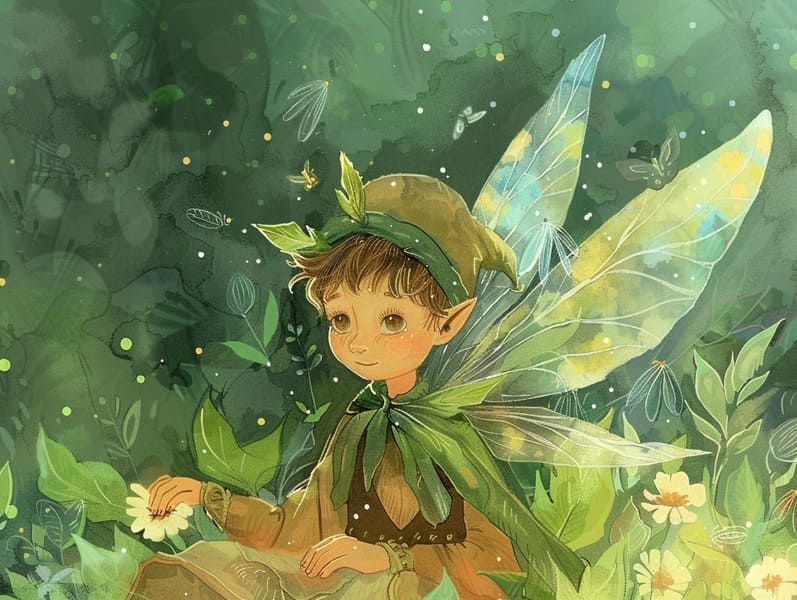Discovering the Magic of Bedtime Adventures: Creating Valued Experiences with Kids
Discovering the Magic of Bedtime Adventures: Creating Valued Experiences with Kids
Blog Article

Nightfall is a special time for parents and children. It’s a occasion to unwind, nestle in, and share the wonder of bedtime narratives.
For lifetimes, bedtime stories for kids have been a valued practice, offering more than just a way to drift off. They provide an occasion for togetherness, discovery, and fueling vision.
The Meaning of Bedtime Stories
Sleep stories for kids serve more than a way to close the day. They play a vital role in a child’s progress and in reinforcing the parent-child relationship. Here’s why they are important:
1. Together Time: Sharing bedtime stories strengthens a special period of closeness between caregivers and children. It’s a moment of togetherness that helps children feel appreciated and secure.
2. Speech Improvement: Enjoying narratives helps children develop their communication skills. They learn new terms, understand construction, and improve their hearing and analytical skills abilities.
3. Creative Development: Children's tales transport them to magical worlds, encouraging imagination. They dream of characters, settings, and adventures, which powers their innovation.
4. Emotional Growth: Stories for children often depict characters facing obstacles and emotions. These scripts help kids understand and work through their own feelings, developing emotional skills.
5. Cognitive Development: Being read a tale helps children develop concentration, recall, and thought processes. They acquire to follow plots, remember details, and guess endings.
How to Incorporate Bedtime Stories
Creating a bedtime routine that involves narrating bedtime stories is simple and beneficial. Here’s how to make it a treasured part of your bedtime ritual:
1. Choose a Comfortable Spot: Select a relaxing place where you and your child can nestle in without noise. A relaxing bed or a snug reading nook works well.
2. Choose a Specific Time: Fix a consistent time each night for bedtime stories. Dependability helps children be ready and makes the habit more manageable.
3. Pick Age-Suitable Stories: Select tales that suit your child’s understanding. Toddlers might prefer illustrated books with clear stories, while older kids may be drawn to novels with more involved stories.
4. Animate the Tale: Make sure the tale be engaging by using different voices and accents, adding audio effects, and inviting your child to engage. Ask things about the story to keep them engaged.
5. Make a Calm Setting: Softly light the lights, use calm voices, and create a calming environment to help your child settle down.
Finding the Best Bedtime Stories
There are many choices where you can find perfect bedtime stories for children. Here are some options to think about:
1. Books for Children: Check out your neighborhood library or bookstore to find a large selection of bedtime stories for kids. Checking out the shelves together can be a fun activity that also allows children to get stories that they like.
2. Internet Resources: There are many sites that offer free bedtime stories. Sites like kids' story platforms provide a variety of short stories for kids that you can get for free. These resources are great for finding new and unique stories without payment.
3. Apps and Audiobooks: For nights when you’re too drained to read, look into audiobooks or storytelling apps. These can provide a quiet narration to read your child a story, ensuring they still get their bedtime story fix. Apps often offer fun elements that can engage children further.
4. Personal Stories: Write your own stories reflecting your child’s hobbies. Personalized stories can be very engaging and meaningful. You can include your child in the storytelling process, making them a part of the adventure.
Perks of Short Stories
Concise stories for kids are very effective for bedtime. They provide all the plusses of longer stories but are more short, making them perfect for preparing for sleep before sleep. Here’s why short stories are a excellent choice:
1. Simple to Understand: Compact stories are clear and effortless for children to follow, even after a long day. They can promptly grasp the narrative and enjoy the story without losing focus.
2. Quick Engagement: These stories rapidly engage children, grabbing their attention and interest. This makes them great for keeping bedtime customs effective yet enjoyable.
3. Diverse Options: Short stories make possible for variety in your bedtime reading. You can find a different story each night, keeping the practice exciting and exciting for your child.
4. Time Management: For busy parents, concise narratives are a efficient way to guarantee children still get their nightly dose of storytelling. They fit well into a packed schedule while still offering the full good aspects of a bedtime story.
"Read Me a Story": The Magic Phrase
The simple phrase, “Tell me a story,” can offer a world of magic for children. Saying yes to this request not only answers a child’s wish for attention and engagement but also forms lasting times. Here’s why it’s charming:
1. Attachment: Storytelling to your child creates a deep emotional tie. It’s a time for intimacy, sharing, and bonding.
2. Tradition: these guys Building a bedtime story practice creates a important tradition that children are excited for every night. It’s a tradition that can be handed down through generations.
3. Joint Growth: As you narrate, you’ll experience your child’s growth and progress. Their reactions, reactions, and understanding of the stories change, offering insights into their developing minds.
4. Safe Environment: Bedtime stories provide a safe space for children to explore emotions, face fears, and find comfort in the safe presence of a parent.
In Closing
Sleep stories for kids are a effective tool for encouraging a child’s growth and building unforgettable times of connection.